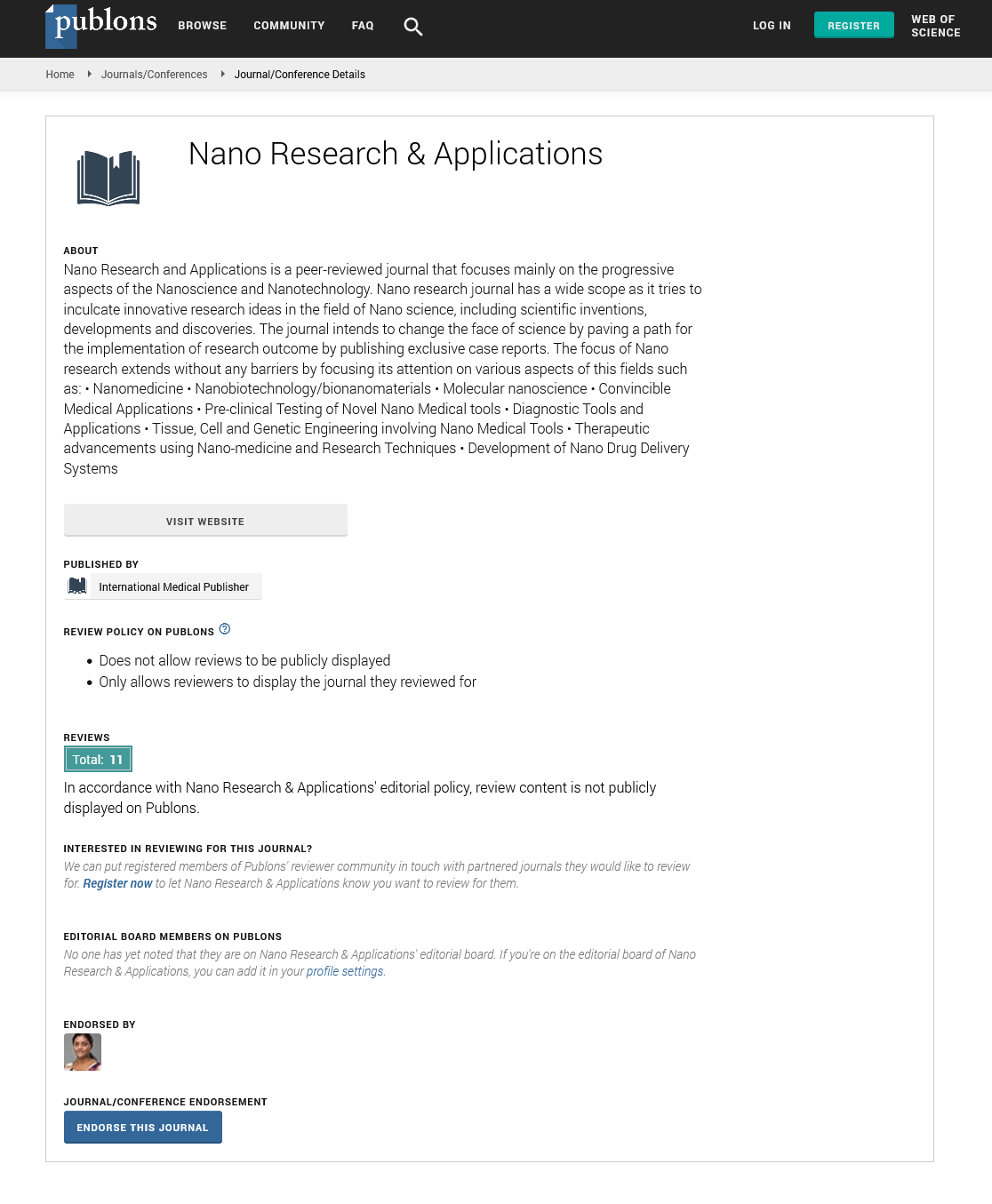ISSN : 2471-9838
Nano Research & Applications
Tuning ferroelectricity in [BaTiO3]m/[BaZrO3]n superlattices: an ab initio study
17th Edition of International Conference on Emerging Trends in Materials Science and Nanotechnology
April 26-27, 2018 Rome, Italy
Nadia Iles, Ilham Kara and Kouider Driss Khodja
University of Oran, ESGEE, Algeria
ScientificTracks Abstracts: Nano Res Appl
DOI: 10.21767/2471-9838-C1-008
Abstract
The ABO3 perovskites are nowadays considered as the best candidates for highly reliable electronic devices thanks to their multifunctional properties. Most of the time, these ternary oxides can combine at least two different physical properties. Barium Titanate (BaTiO3) is a typical ferroelectric in its tetragonal phase with a spontaneous polarization at the bulk scale. Barium Zirconate (BaZrO3) is stable in a cubic structure and is widely used as substrate for other perovskites. The lattice mismatch is an important parameter for stacking two different perovskites. For BaTiO3/BaZrO3 superlattices, the lattice mismatch of induced important structural and electronic modifications at nanoscopic scale. Few experimental works were conducted on [BaTiO3]m/[BaZrO3]n superlattices with modulation period ��=(n+m)�£ = 3.2 , 4.8 , 6.4 et 8 nm (�£ is the mean lattice parameter in the transverse direction to the substrate). Hysteresis loops measurements show that the out of plane polarization increases with the modulation period (��). However these experimental studies were restricted to high modulation period and no results were available on very short modulation period of these superlattices. In this theoretical study, we investigated [BaTiO3]m/[BaZrO3]n systems with n and m varying from 1 to 3 to predict their structural and electronic modifications with respect to n/m and different symmetries (P4mmm, P4mm, Pmm2, Pm, P1). For this purpose, ABINIT code based on density functional theory (DFT) and plane waves (PW) basis is used for our ab initio calculations. Our results show that the P1 symmetry with three dimensional polarizations is the most stable for all the studied modulation periods. Our finding can be useful for tuning ferroelectric devices. Recent Publications 1. N Iles, A Kellou, K Driss Khodja, B Amrani, F Lemoigno, D Bourbi and H Aourag (2007) Atomistic study of structural, elastic, electronic and thermal properties of perovskites Ba(Ti,Zr,Nb)O3. Computational Materials Science 39:896-902. 2. T Belaroussi, B Amrani, T Benmessabih, N Iles and F Hamdache (2008) Structural and thermodynamic properties of antiperovskite SbNMg3. Computational Materials Science 43:938-942. 3. N Iles, F Finocchi and K Driss Khodja (2010) A systematic study of ideal and double layer reconstructions of ABO3 (001) surfaces (A=Sr, Ba and B=Ti, Zr). Journal of Physics: Condensed Matter 22(30):305001. 4. N Iles, K Driss Khodja, A Kellou and P Aubert (2014) Surface structure and polarization of cubic and tetragonal BaTiO3: An ab initio study. Computational Materials Science 87:123-128. 5. Im�¨ne Cherair, Nadia Iles, Lyacine Rabahi and Abdelhafid Kellou (2017) Effects of Fe substitution by Nb on physical properties of BaFeO3: A DFT+U study. Computational Materials Science 126:491â��502.
Biography
Nadia Iles has finished her PhD studies in 2010, devoted at the same time to teaching and research at Oran 1 University and Oran’s High School of Electrical Engineering and Energetics. She is interested in computing physics of low dimensional systems based on perovskites materials. She has published more than seven international and national research papers. She has participated in oral and poster presentations in more than 16 international, national conferences and in seminars. She is supervising more than five Master’s and Doctoral thesis. She is a Member of numerous national and international projects such as PHC TASSILI (CMEP) with European funding, CNEPU and PNR with national funding.
Email:n_ilesdz@yahoo.fr
Google Scholar citation report
Citations : 387
Nano Research & Applications received 387 citations as per Google Scholar report
Nano Research & Applications peer review process verified at publons
Abstracted/Indexed in
- Google Scholar
- China National Knowledge Infrastructure (CNKI)
- Directory of Research Journal Indexing (DRJI)
- WorldCat
- Publons
- Secret Search Engine Labs
- Euro Pub
Open Access Journals
- Aquaculture & Veterinary Science
- Chemistry & Chemical Sciences
- Clinical Sciences
- Engineering
- General Science
- Genetics & Molecular Biology
- Health Care & Nursing
- Immunology & Microbiology
- Materials Science
- Mathematics & Physics
- Medical Sciences
- Neurology & Psychiatry
- Oncology & Cancer Science
- Pharmaceutical Sciences
